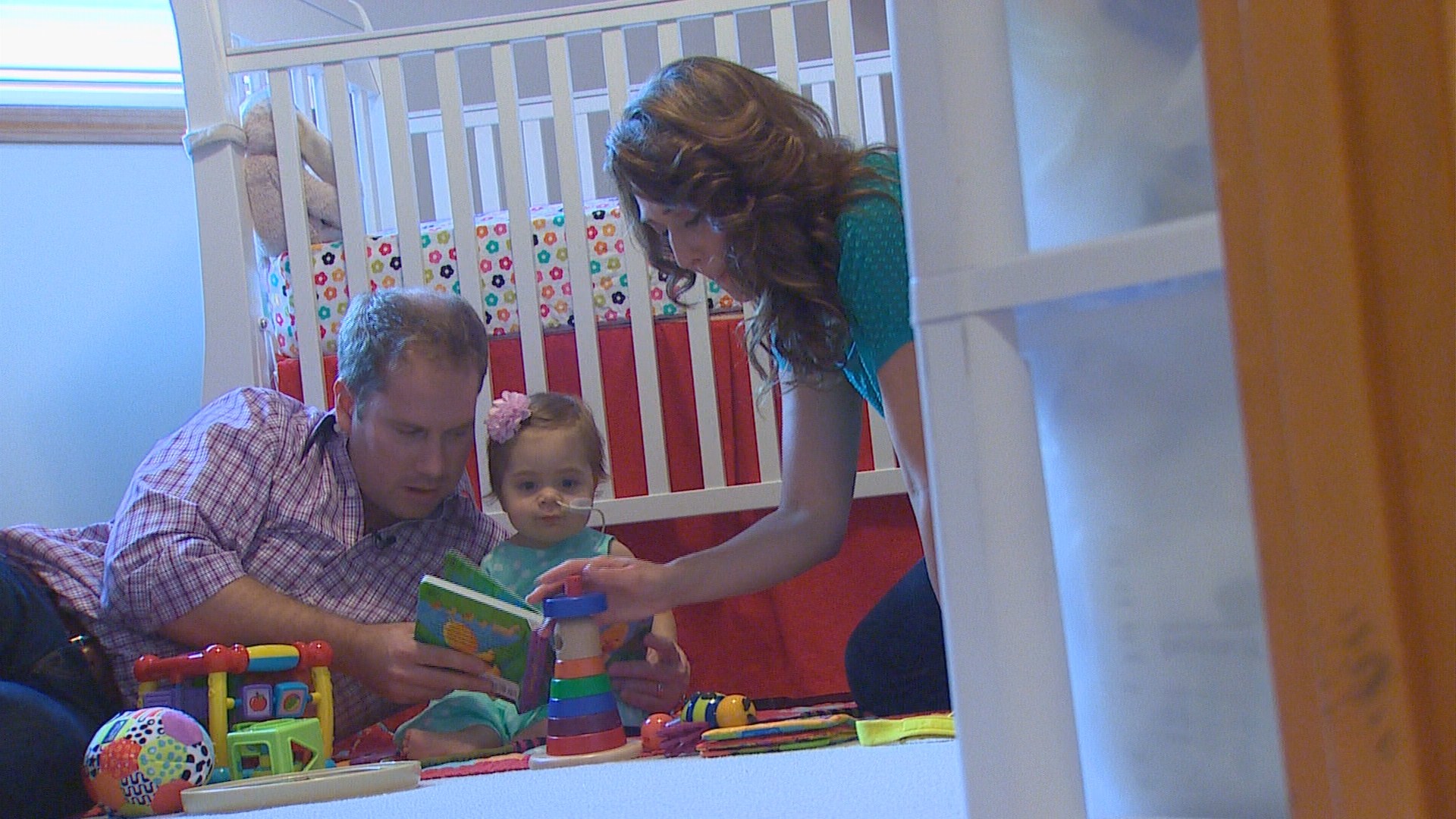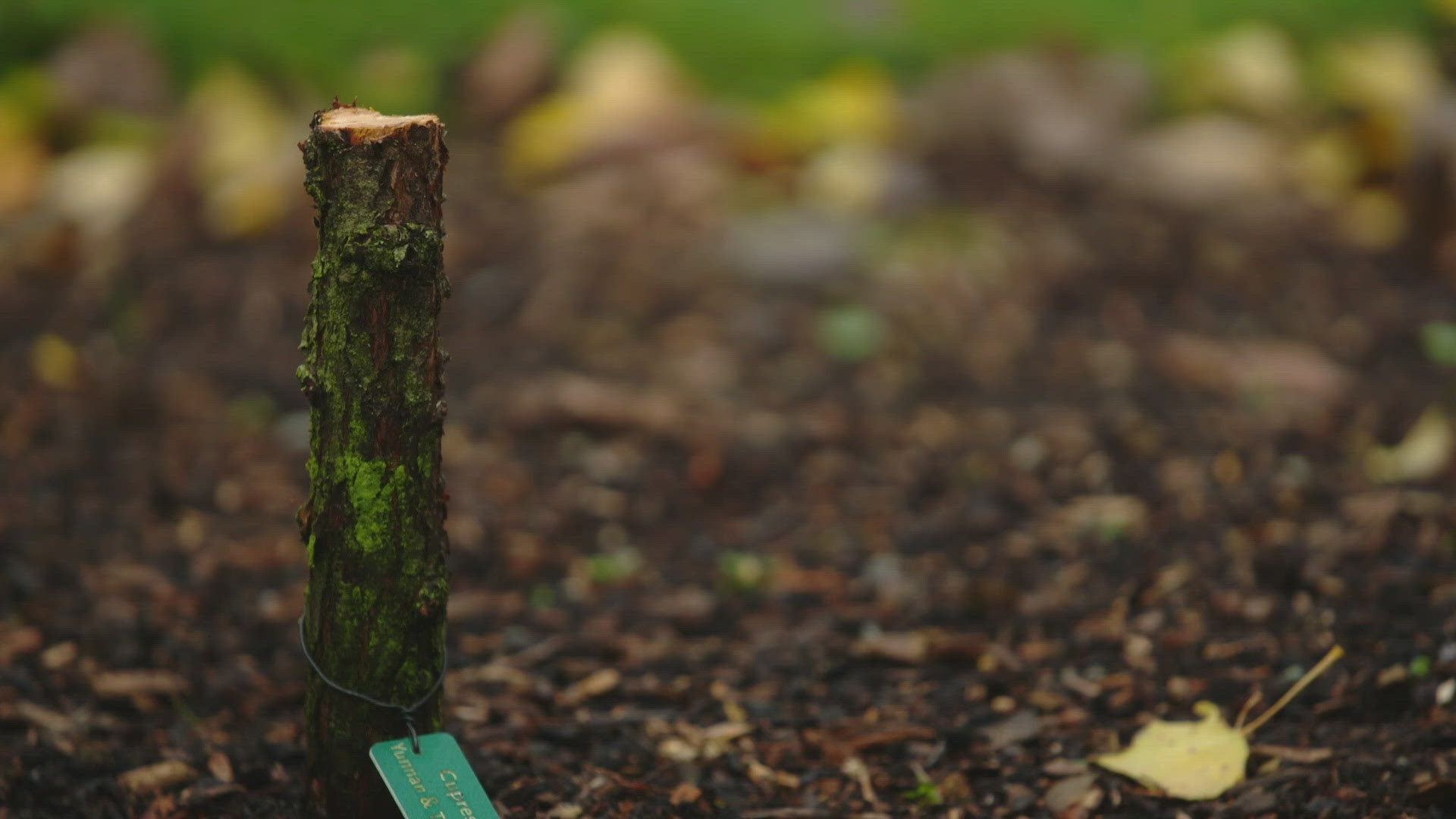CAMAS, Wash. -- Every story has a beginning. But the story of Abigail Rose Beutler almost ended before she was even born -- when her mom, Rep. Jaime Herrera Beutler, was five months pregnant.
"We thought we were going to find out the sex so we were in there watching the ultrasound. And then he got right next to us and said, 'I cannot see any kidneys,' and I knew it was bad. We understood the gravity but we were like, 'What does that mean?'" Herrera-Beutler recalled.
No kidneys meant the baby wasn't producing amniotic fluid. Without it, her lungs and other organs couldn't develop. It's called Potter Syndrome, a condition doctors told them was 100 percent fatal.
"When she is moving inside of me and he is telling me she will not live? It was intense. That was intense," said Herrera Beutler.
The couple was told Jaime would either miscarry or the baby would suffocate at birth.
"I have a framed ultrasound picture over here because I didn't know how many pictures we were going to get," Herrera Beutler said.
Doctors suggested terminating the pregnancy. But the Beutlers weren't about to give up.
"We just both felt like we need to be parents now," said Dan Beutler, "and fight for her and do whatever we can to save her."
"We felt very strongly this is the baby God chose for us. She's ours," said the congresswoman. "So I'm not going to be the one to end it. In fact, we decided with some faith and some courage we're going to fight."
As word spread in the media, they learned of an unconventional procedure that involved injecting saline into the womb to give Abigail's organs room to grow. The problem: it wasn't considered acceptable treatment for Potter Syndrome. So, doctor after doctor turned them down.
"We understand fully that this has a very small chance of working, but you can't make the diagnosis worse," recalled Herrera Beutler. "How are you going to make this worse? She's going to die if we don't do something."
After an exhaustive search and a lot of persuasion, a doctor at Johns Hopkins agreed to give it a try. Dan Beutler remembers the moment it appeared to work.
"They put a little fluid in, then a little more. And within a minute or two, we could actually watch Abigail's chest pulsing because she was breathing," he said.
But doctors couldn't know how well it was working. The Beutlers were warned it might not be enough. Weeks later, Abigail was born three months premature.
"Somebody said, 'Look down at your baby,' and we look at her and she was a tiny little thing. She was 2 pounds 12 ounces and she kind of looked at us and she opened her mouth and she cried. And you can only cry if you have lungs," Herrera Beutler said.
The Beutlers had their miracle.
Now 14 months old, Abigail is on nightly home dialysis. She'll need a kidney transplant soon and her dad is a match.
Abigail's story may now change the treatment protocol for Potter Syndrome. The Beutler's personal story playing out in the public eye hasn't been easy. But Herrera Beutler hopes their story inspires other families and gives them hope where there was once none.
"If we're able to break through a barrier and we're able to get to a 'Yes' because of this and another kid's going to have a shot? Totally worth it," said Herrera Beutler.


